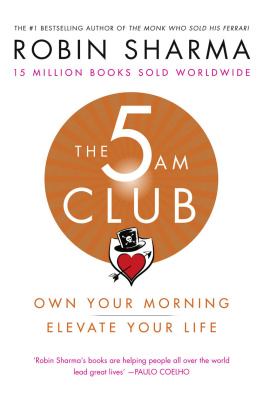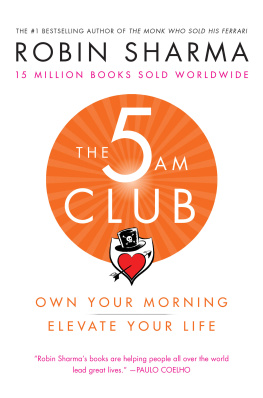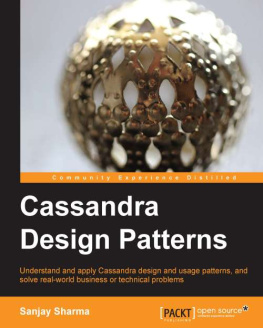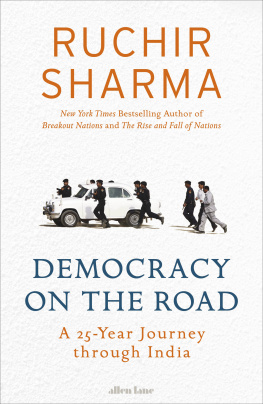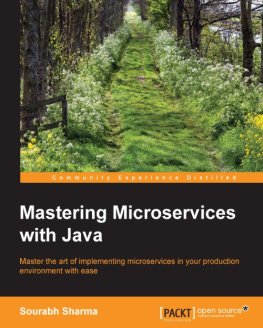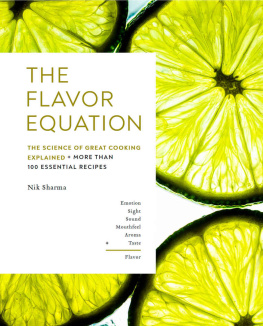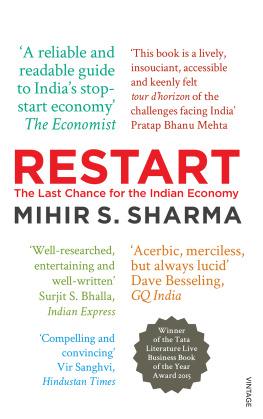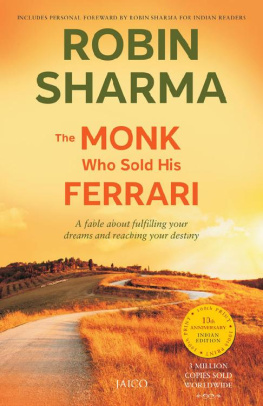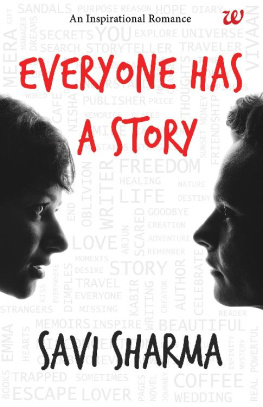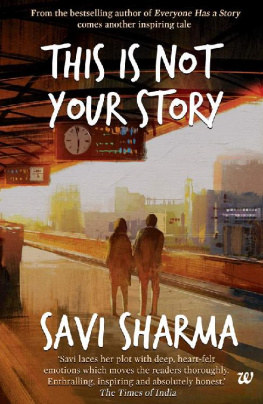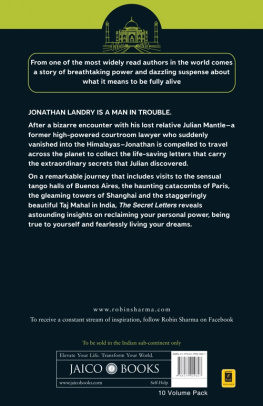Sharma - Home Rule
Here you can read online Sharma - Home Rule full text of the book (entire story) in english for free. Download pdf and epub, get meaning, cover and reviews about this ebook. year: 2020, publisher: Duke University Press, genre: Politics. Description of the work, (preface) as well as reviews are available. Best literature library LitArk.com created for fans of good reading and offers a wide selection of genres:
Romance novel
Science fiction
Adventure
Detective
Science
History
Home and family
Prose
Art
Politics
Computer
Non-fiction
Religion
Business
Children
Humor
Choose a favorite category and find really read worthwhile books. Enjoy immersion in the world of imagination, feel the emotions of the characters or learn something new for yourself, make an fascinating discovery.

Home Rule: summary, description and annotation
We offer to read an annotation, description, summary or preface (depends on what the author of the book "Home Rule" wrote himself). If you haven't found the necessary information about the book — write in the comments, we will try to find it.
Sharma: author's other books
Who wrote Home Rule? Find out the surname, the name of the author of the book and a list of all author's works by series.
Home Rule — read online for free the complete book (whole text) full work
Below is the text of the book, divided by pages. System saving the place of the last page read, allows you to conveniently read the book "Home Rule" online for free, without having to search again every time where you left off. Put a bookmark, and you can go to the page where you finished reading at any time.
Font size:
Interval:
Bookmark:
HOME RULE
National Sovereignty and the Separation of Natives and Migrants
NANDITA SHARMA
Duke University Press Durham and London 2020
2020 Duke University Press
All rights reserved
Printed in the United States of America on acid-free paper
Designed by Drew Sisk
Typeset in Canela Text by Westchester Publishing Services
Library of Congress Cataloging-in-Publication Data
Names: Sharma, Nandita Rani, [date] author.
Title: Home rule : national sovereignty and the separation of natives and migrants / Nandita Sharma.
Description: Durham : Duke University Press Books, 2020. | Includes bibliographical references and index.
Identifiers: LCCN 2019023958 (print)
LCCN 2019023959 (ebook)
ISBN 9781478000778 (hardcover)
ISBN 9781478000952 (paperback)
ISBN 9781478002451 (ebook)
Subjects: LCSH : Sovereignty. | Self-determination, National. | Postcolonialism. | World politics19451989.
Classification: LCC JC 327 .S 5165 2020 (print) | LCC JC 327 (ebook) | DDC 320.1/509045DC 23
LC record available at https://lccn.loc.gov/2019023958
LC ebook record available at https://lccn.loc.gov/2019023959
Cover art: Pieter Bruegel the Elder, The Tower of Babel , 1563.
Oil on panel. Wikimedia Commons/Google Art Project.
For Santosh Rani Sharma and Gaye Chan
My mother, Santosh Sharma, died while I was working on this book. In many ways Ive written it because ofand forher. Like so many of us, she was continuously refashioned according to the historical changes taking place in state forms, and through an ever-encompassing capitalism. My mother was born a British subject. As the clock ticked past midnight on the day India achieved home rule, she was made an Indian national. That same day, she set out for the Delhi railway station to bring food to those forced to flee Pakistan, the other side of partitioned British India. There she encountered people desperate to flee massacres in India and she offered them food as well. Santosh lived the second half of her life in Vancouver, first as an immigrant and then as a Canadian citizen.
Denigrated as a native in British India, Santosh and her parents strongly supported M. K. Gandhis nationalist version of decolonization. My father, Kesho Ram Sharma, was a communist and held a different view of decolonization than my mother, but he was enthralled with modernity. Kesho took Santosh to see her first film: Mother India , a classic tale of development. He also forced her to have three abortions in order to comply with Indias modernization campaign of two children per (nuclear) family. When my parents immigrated to Canada with my brother and me, we were among the first cohort admitted after Canadas preferred races and nations clause was removed. In Canada, Santosh experienced racism day in and day out. Beaten by strangers on the street, harassed on buses for wearing saris and a nose ring, she was only able to find employment at a number of very low-paying jobs, from seasonal farm worker to nanny to dishwasher to short-order cook in fast food hamburger chains. Santosh nonetheless made a life for herself and for those she loved: my brother, Paul Sharma; her mother, Maya Devi Sharma; her sister, Kaushalya Devi Sharma, who was denied entry to Canada; her nephew, Yash Pal Sharma; and me. She even supported my abusive father. She learned Punjabi and made good friends across racialized, nationalized, and sexualized divides. She was never seen as a Canadian in Canada. And she never gave up her fierce anticolonial spirit. In one memorable moment, upon watching the Canadian state send in armed soldiers to put down a revolt by Mohawks in Kanehsat :ke and Kahnaw :ke in 1992, she commented, Us and them: same, same. She recognized the violence against Mohawks from her own experiences of colonialism in both India and Canada. Same, same was a vow of solidarity to defeat racists, nationalists, capitalists, and anyone who lords their power over us. My mother supported me in all of my own transformations and taught me much. Thank you Mama.
There are so many others to thank for their insights and their material, emotional, and critical support. The first to thank are all the people variously categorized by states as natives, migrants, citizens, or as stateless, whose determined rejection of nations, borders, states, and capital has been fundamental to my thinking about politics and social relations. Id also like to thankand remembermy brother, Paul Sharma; Roxana Ng, my PhD supervisor at the Ontario Institute for Studies in Education at the University of Toronto; and my friend Kerry Preibisch, whose unwavering solidarity with migrant farm workers was an inspiration. All three were tremendously influential in shaping my life and work and their passing has left a huge hole in my heart. My partner and comrade, Gaye Chan, has been a balm and a joy. Her support is bottomless and she has helped me to live and love while writing this book. Our work with Eating in Public, an anarchist, rhizomatic project working for the return of our commons, has profoundly shaped this book project (see nomoola.com).
Ideas for this book first took shape in a reading group I joined in Toronto while on faculty at York University. Id like to thank Gamal Abdel-Shehid, Julia Chinyere Oparah, Rinaldo Walcott, and Cynthia Wright, both for the incredible reading list we put together and for the generosity of their intellectual spirit. As always, I thank my twin brother from a different mother, John Henry Moss, who read and re-read the entire manuscript numerous times. His help with the Tower of Babel story was tremendous. Allison Campbell, my sister from a different mister, is also thanked for always knowing, in true ox form, the value of ploughing on through good times and bad and has shared this with me. Marcus Rediker, an encouraging fellow creature throughout the writing of this book, especially during a memorable lunch at the Cleveland Clinic, is thanked equally for his wisdom, good humor, and singing along. It is truly a pity that I had completed this manuscript before sitting in on his graduate course on how to write history from below. Sharry Aiken, Bridget Anderson, Deborah Brock, Julia OConnell Davidson, Tom Dye, Eve Haque, Ruth Hsu, Fiona Jeffries, Renisa Mawani, Pablo Mendez, Dore Minatodani, Radhika Mongia, Caroline Sinavaiana, Andrea Smith, Jacqueline Sanchez Taylor, Sarwat Viqar, Melissa Autumn White, and Cynthia Wright are each thanked for their engaged and animated conversations about the topic of this book, and for their help in honing its content. Alfie Barosso Taylor is thanked for sharing her former schools prayer. In addition to the above (some of whom also offered me venues at which to discuss this work), I would also like to thank Julia Bryan-Wilson, Mel Chen, Martin Geiger, Nicholas De Genova, Steve Gold, Gayatri Gopinath, Vicky Hattam, Katherine McKittrick, Mary Mostafanezhad, Jane Pulkingham, Eberhard Raithelhuber, Wolfgang Schr er, Cornelia Schweppe, Ann Stoler, and Miriam Ticktin for providing important spaces in which much helpful feedback was offered. Ken Wissoker, Duke University Presss editorial director, was the catalyst for my putting these ideas down on paper, and Id like to thank him for supporting me through the (too) many years it took me to bring this book into the world. The two anonymous reviewers who spent much time making their comments and suggestions have most certainly made this a better book and Id like to thank them for their very careful readings of it. Id also like to thank Cathy Hannabach for reining in this book with her initial editing of it, Brian Ostrander for his tireless efforts in its subsequent production, and Paula Durbin-Westby for creating the index. With much love and with a hopeful eye to the future, Id like to thank my nephew, Addie Campbell, whose sweet heart and sharp mind has made the world a better place. His joyful exhortation, Maasi, you are writing a book!, kept me going.
Font size:
Interval:
Bookmark:
Similar books «Home Rule»
Look at similar books to Home Rule. We have selected literature similar in name and meaning in the hope of providing readers with more options to find new, interesting, not yet read works.
Discussion, reviews of the book Home Rule and just readers' own opinions. Leave your comments, write what you think about the work, its meaning or the main characters. Specify what exactly you liked and what you didn't like, and why you think so.


